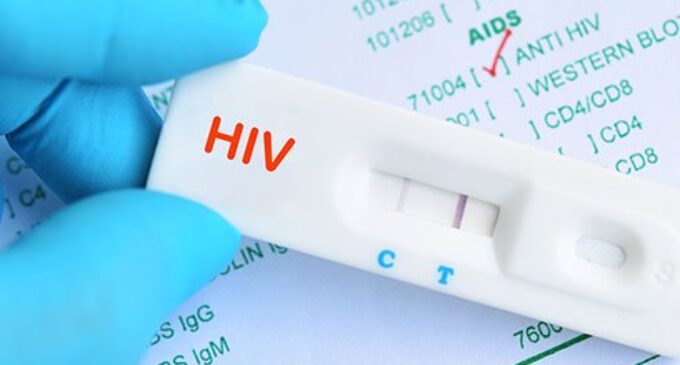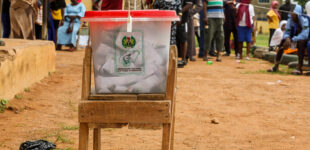Nondisclosure of status, a major challenge to control HIV

BY CARL UMEGBORO
Since 2016, the World Health Organization (WHO) has recommended that all people living with HIV (PLHIV) be provided with antiretroviral therapy (ART); a prescription for controlling HIV, including children, adolescents, adults, pregnant and breastfeeding women, regardless of clinical status or CD4 cell count. Globally, about 27.5 million [26.5–27.7 million] people living with HIV received ART in 2020. Health experts maintain that current antiretrovirals (ARV) act mainly by antagonizing various HIV enzymes necessary for viral replication. Regrettably, the major challenge facing most developing nations is nondisclosure of status when tested HIV-positive. From investigation in Nigeria, many are reluctant to undergo HIV tests, and when they eventually submitted, some that tested HIV-positive refused to open up for fear of stigmatisation.
Nondisclosure of status has continued to constitute a barrier in the fight to combat the spread of HIV and AIDS in Nigeria. The stigmatization and discrimination that persons living with HIV are subjected to after disclosure demands a national emergency for sensitization. The way PLHIV are treated is critical and will always have adverse effects on other peoples’ disposition to go for tests or disclose their status. And many people are guilty of oversights and misconceptions.
For emphasis, to encourage HIV diagnosis and disclosure of status by people that tested HIV-positive, there are practical things to do towards helping a loved one who has been diagnosed with HIV. The first is invoking lively conversations instead of isolation. To talk and be available for open, honest conversations about HIV with the person who is diagnosed with HIV is pivotal considering that the person may not always want to talk about it. It is recommended that showing them that they are still the same person despite the status and that they are more than their diagnosis is important.
Second, listening attentively to understand their challenges to be able to offer possible support rather than being judgmental or hypercritical will add value. In fact, to unremittingly bolster them that HIV is a manageable health condition and that with ART therapy, it can be managed and help them stay healthy and live long, can build them up. All that is requisite is to learn from it. Educate yourself about HIV: what it is, how it is transmitted, how it is treated, and how people can stay healthy while living with HIV. Having a solid understanding of HIV is tremendously a big step forward in supporting your loved one as that will eliminate discrimination or stigmatization against PLHIV.
Third, encourage treatment by health experts knowing that some people who are freshly diagnosed may find it difficult to take the bold step to HIV treatment. Your support and assistance at this critical moment certainly will be helpful. By getting linked to HIV medical care early, starting treatment with HIV drugs, adhering to medication, and staying in care, people with HIV can keep the virus under control, and prevent their HIV infection from progressing to AIDS. So, support medication adherence and find out possible areas to support PLHIV in establishing a medication routine and sticking to it.
Incontrovertibly, HIV/AIDS has become a global epidemic. According to UNICEF, about 320,000 children and adolescents were infected with HIV in 2019 and traced to one in every one hundred seconds. In 2020, approximately 56-100 million people were infected with HIV globally with 36.3 million total deaths recorded on account of the COVID-19 pandemic which obstructed HIV medications. Health specialists assert that HIV targets the immune system and weakens people’s defence against many infections and some types of cancer that people with healthy immune systems can get rid of. As the virus destroys and impairs the function of immune cells, infected individuals gradually become immunodeficient. The immune function is typically measured by CD4 cell count. CD4 cell count is a test that measures the number of CD4 cells in the blood. CD4 cells, also known as T-cells, are white blood cells that fight infection and play an important role in the human immune system.
The most advanced stage of HIV infection is acquired immunodeficiency syndrome (AIDS), which can take many years to develop if not treated. AIDS is characterized by the development of certain cancers, infections or other severe long-term clinical manifestations. The symptoms of HIV vary depending on the stage of infection. Though people living with HIV tend to be most infectious in the first few months after being infected, many are unaware of their status until the later stages. In the first few weeks after the initial infection, people may experience no symptoms or an influenza-like illness including fever, headache, rash or sore throat. As the infection progressively weakens the immune system, they can develop other signs and symptoms, such as swollen lymph nodes, weight loss, fever, diarrhoea and cough. Without treatment, they could also develop severe illnesses such as tuberculosis (TB), cryptococcal meningitis, severe bacterial infections, and cancers.
Last but not the least, a key step to encourage disclosure of status when tested HIV-positive is to acknowledge with cheers. Always acknowledge, if someone has disclosed their HIV status to you to be trustworthy with their private health information. This builds their confidence to keep hope alive. Care is a potent tool. Ensure that the person is uplifted to a significant measure to prevent any regrets after disclosure. Essentially, reassure through words and actions, that their HIV status does not change your relationship or classification about them.
These steps will not only build confidence but will also encourage them on taking medications and by extension, ardently motivate them to be part of the fight against the spread of HIV/AIDS. Again, it must be reemphasized that HIV cannot be transmitted by handshakes, hugging, playing together or other casual contacts except unprotected sexual intercourse, blood transfusion or percutaneous actions. This infers that the discrimination against PLHIV is uncalled for. Always bear in mind that their encounter is a stimulus needed to encourage newly diagnosed persons.
Umegboro, a public affairs analyst and social advocate is reachable via: [email protected] (08023184542 SMS-only)
Views expressed by contributors are strictly personal and not of TheCable.
















There are no comments at the moment, do you want to add one?
Write a comment